An Examen for White Allies
BY MADDIE MURPHY | December 12, 2018
It is no secret that racism is a long-lasting and dangerous major sin and violence within American society. This past year has highlighted unspeakable actions that negatively and systematically impact people of color—from the continued destruction of Indigenous lands, to the murders of black individuals, to the separation of families at our border. It has felt spiritually overwhelming to be faced with the racism that some of us may have convinced ourselves was long gone. It is challenging to recognize that while progress has been made in this country, we are nowhere near being a just, or even safe, country for people of color.
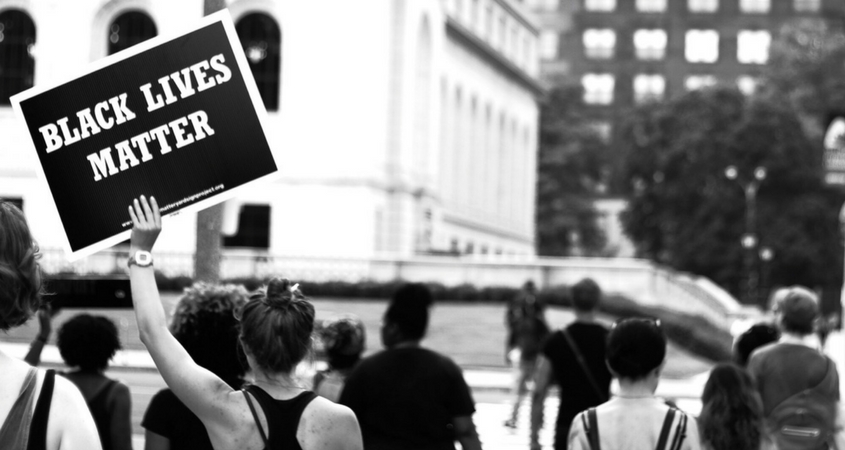
I must admit that I, when faced with the immensity of racism in this country, have chosen to check out at moments rather than lean in as an ally, or have failed to realize because of my privilege that these seemingly “new” actions of racism where in fact not new, but have been happening for years. My own privilege allowed me to not be conscious of these actions, but rather allowed me to cling to my chosen ignorance. While it is a privilege for white folks to be able to “check out” of some of these difficult and challenging conversations, actions, and movements, it is essential for us to lean away from apathy, cynicism, and passive, complicit ignorance—and lean into a vocation that we as human beings and people of faith and justice are called to become: racial allies in a society steeped in white supremacy.
As a white Jesuit Volunteer, I have witnessed racial injustice: from my commute to service, to interactions and client testimonies at my service placement, and to the national news that showcases even more pain. In reflecting, I can find ways in which I have used my power, privilege, and resources to benefit and support my clients of color, just as I can shamefully find ways in which I ignored or abused my privilege. I am not proud of these moments. Although it would be easier for me to ignore them and move on, part of being a racial ally is in the presence and awareness and self-education of these moments. Truly, reflecting on my actions and how I take from and make space for people of color is an incredibly Ignatian thing to do.
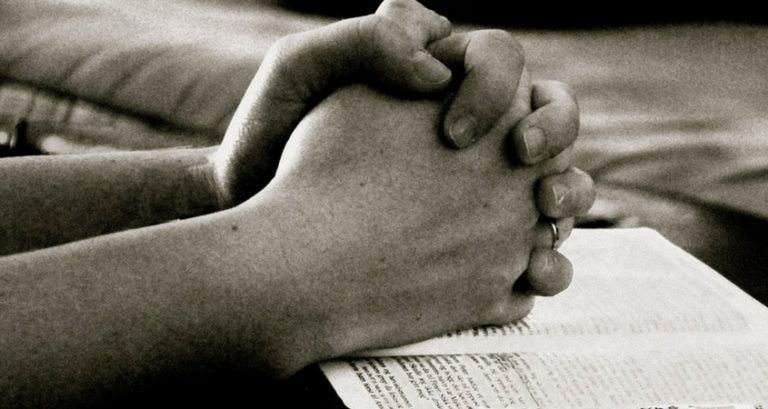
Ignatian spirituality invites us to become contemplatives in action, an invitation for us to view the way in which we can be in this world. It asks us to be aware not only of the world around us, but how we move, act, and love within it. Being an ally for racial justice asks us to do the very same thing—that is, to reflect and be aware of the systemic racial oppression our society is built upon, and on how we not only benefit from it, but on how we can use our power and privilege to dismantle it and support people of color. In short, it asks us to be present and put in the work.
Being a white JV living and serving on stolen Indigenous lands, while serving a diverse population who are affected by systemic oppression and racism, it is not only civilly important for me, but morally and spiritually imperative that I reflect on the ways my whiteness supports or challenges racism—in my daily thoughts, words, and actions. Thus, I have reworked the traditional Examen to become an Examen for white folk hoping to act as racial allies. A common version of the Examen is as follows:
- Become aware of God’s presence
- Review the day with gratitude
- Pay attention to your emotions
- Choose one feature of the day and pray from it
- Look forward to tomorrow.
Below is my adaptation of an Examen for white allies in our Ignatian family:
1. Become aware of God’s presence.
Think about the God of the oppressed, the true and loving God—think about the people God called Her own. Remember the people She sought to protect, the people She pulled prophets from, were the poor and marginalized of society.
Reflect on the poor and marginalized of today’s society—who do you see? Remember God’s love for them by seeing them, and how you are called into God’s love by loving them and resisting the systems, thoughts, and institutions that seek to prevent love and community. Remember there is no room for love in racism.
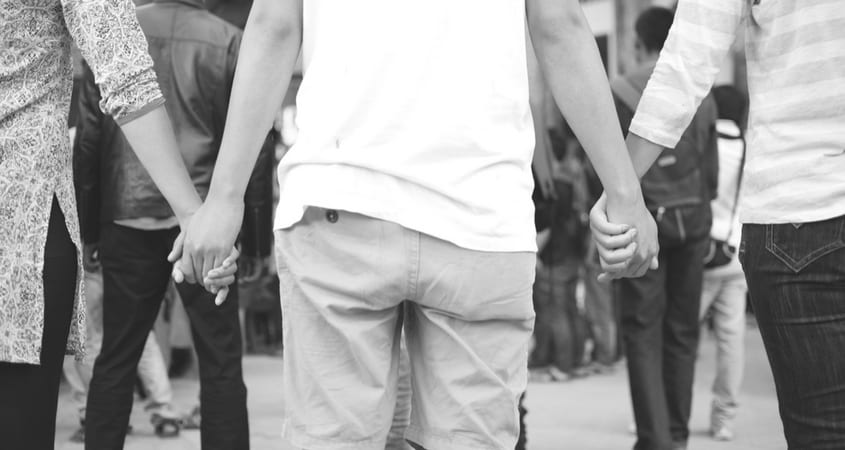 Reflect on the systems that seek to keep you from loving one another. Recognize that God’s own face is reflected in the faces of the marginalized of our society. God’s face is in a brown, Jewish carpenter’s, just as much as it is in the Black American woman’s, or in the forgotten American Indian’s, or in the faces of the family of color seeking asylum from political unrest.
Reflect on the systems that seek to keep you from loving one another. Recognize that God’s own face is reflected in the faces of the marginalized of our society. God’s face is in a brown, Jewish carpenter’s, just as much as it is in the Black American woman’s, or in the forgotten American Indian’s, or in the faces of the family of color seeking asylum from political unrest.
Find God in all things and all people—especially the ones racism seeks to divide us from through hate, discrimination, and systemic institutionalized oppression.
2. Review how you used your white privilege today.
If a person of color was telling you their experience, did you listen with openness and compassion? Or did you argue, ignore, or interrupt?
In your place of work/service, did you use all available resources to make things culturally sensitive for your coworkers or clients, or did you assume American Western whiteness as the status quo?
Did you reflect on the land you stand on, or the rights you have that our justice system sees as racial privileges?
Did you speak up when a white friend/relative/coworker said or acted in a problematic way, or did you choose silence over action?
Allow yourself to remain present in all reflection—in the moments you are proud of your actions, but especially in the moments where you are not. Do not shy away from examples of your need and capacity for growth and love.
3. Pay attention to your emotions.
In reflecting on how you utilized your privilege today, what are your feelings? Is there shame, anger, discomfort, fear, or hatred? Are there prejudices you hold that you are becoming aware of? Are there parts of your day where you felt confused, not sure whether something you said, did, or heard was problematic or oppressive?
However uncomfortable, sit with the discomfort; lean into it and begin to educate yourself from the actions of the day. Write down things you wish to learn more of, or journal about the challenges of allyship. Do not push away from your emotions – they are key in addressing white privilege and white supremacy.
4. Choose one moment of the day where you used your privilege to either make or take space from people of color—reflect on that moment.
Find one moment from the day where you can find your white privilege at work in either an oppressive or just way. If it was something you are proud of, then take the moment to recognize and hold gratitude for the improvement and the opportunity you took to choose love and unity over divisiveness.
Pray for the courage, insight, humility, and self-awareness to continue to grow as a white ally for racial justice.
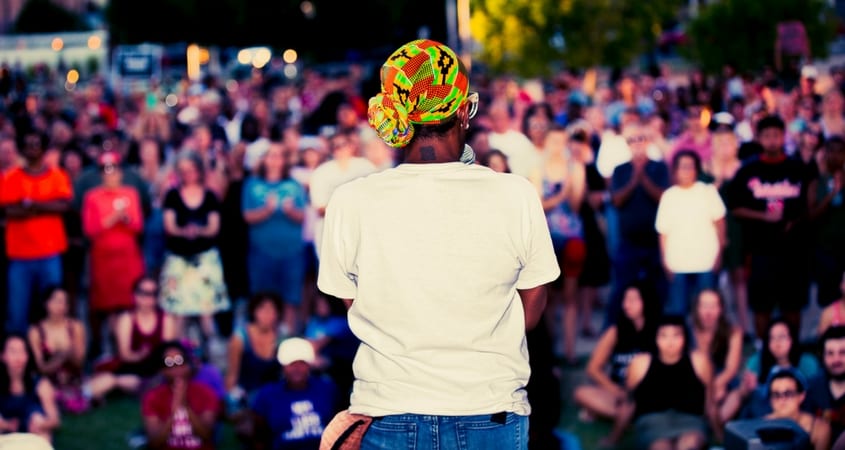
[Black Women Are Leading this Civil Rights Movement, Johnny Silvercloud via Flickr]
Recognize the need and call for more growth and education. If it is a moment where you abused your privilege, focus on what prejudices, notions, or structures were influences in your action. Reflect on how that moment was harmful and divisive. Brainstorm ways to work towards restorative racial healing in the future.
Pray for guidance, perseverance, and awareness for the future.
5. Look forward to tomorrow.
Reflect on ways you can move closer towards allyship. Are there social justice groups or organizations asking for white allies that you can join or give support to? Are there books, articles, or other forms of media on race that you can turn to for education? Are there white folk in your life you may need to have uncomfortable conversations on race with?
Make conscious, practical, and intentional action plans to use your power to help dismantle racism. Be prepared to translate this spiritual work into concrete, physical actions. As St. Ignatius says, “Love is shown more in deeds than in words.”
Racism is a violence that manifests within minds, souls, actions, institutions, and systems—making itself a place within our history, present, and unfortunately in soon-to-be-seen ways, even our future. It is a penetrative, infectious violence that, even after years of social justice actions, protests, and victories, continues to persist. There is much to be done to resist and dismantle racism. Part of that as white folk is to make space within our moral and spiritual lives for continuous reflection, honesty, and self-improvement. It is on us to put in the work—physically, mentally, and spiritually—to educate ourselves and position ourselves to be better allies, and, most importantly, to help us love better. The root of racism is hate, and we are not called to hate, but to love.
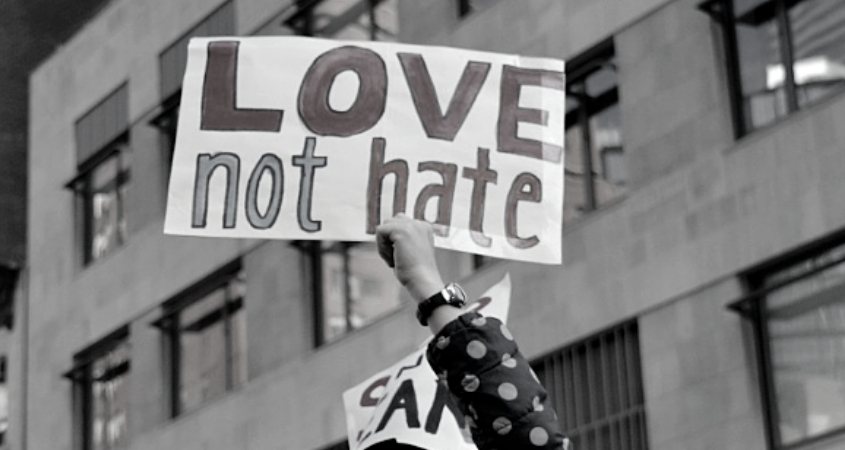
Today, in 2018, I believe that, for white allies, love should like allyship listening, humility, self-education, reflection, and consistent social justice action. It is hard work, but it is also essential work we all have the capacity to perform.
As the poet Rupi Kaur says in her book, “The Sun and Her Flowers”:
“To hate is such a lazy thing
But to love
Takes strength
Everyone has
But not all are
Willing to practice.”
#JVReflects explores the intersection of faith and justice from the perspective of JESUIT VOLUNTEERS serving as long-term volunteers both domestically and internationally with Jesuit Volunteer Corps and Jesuit Volunteer Corps Northwest. Reflections specifically focus on the cornerstone values of the Jesuit volunteer experience: spirituality, simple living, community, and social justice. JVC Northwest is currently accepting applications for the ‘19-20 service year. Start your JV journey here today!
Maddie Murphy was a volunteer with Jesuit Volunteer Corps Northwest in 2017-2018, serving as the Community Support Coordinator at Wintonia Community Housing. She graduated from Fordham University and is from Wayzata, Minnesota.

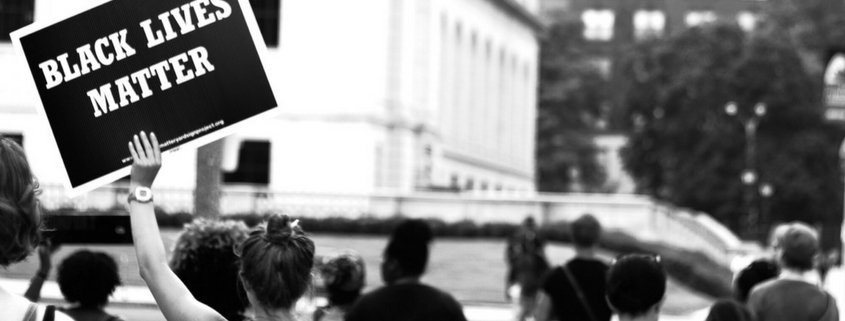


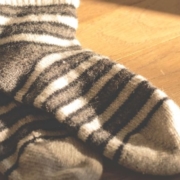


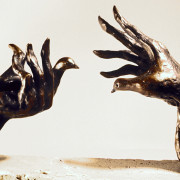

This examination, reflection, and prayer is an excellent. I plan to use it in our social justice group in our parish. We are a predominantly white parish in the south.
Black, white, yellow and brown – they all add beauty to our Planet.
Thank you, Maddie. Please permit me to make a humble suggestion. What do you think about incorporating Jesus in this Examen. Steps 2-5, if my understanding is correct, are meant to take place in intentional dialogue with Christ. Without Jesus, the person of the Trinity who shares in our humanity specifically so that we can relate to God, the Examen risks being self-referential or becoming an echo chamber. God’s presence is certainly needed in our Christ centered mission to uphold the dignity of each and every person of color and I thank you for using the tools of the Examen to help do just that
Whilst noting that this piece was probably written with a kind heart, I have to react to the postmodern identity politics bingo that it contains, and question the extent to which it it fits with Catholic teaching.
Race is a modern construct, and obviously not a concept that was around when Jesus Christ was crucified. So labelling Him as a “brown” man in order to suit your postmodern race obsessed agenda, and try to separate Him from the “white privileged” is awful.
We are all sinners, and each of us have our crosses to bear. Racism is a terrible social ill that should be constantly addressed, but surely this can be done without debasing our faith, and not dividing us further with the anti-Christian identity politics nonsense that divides society today.
I’m sorry but as a person of color…this comes off as insulting, hurtful to being a true “ally” of our Faith and to our God. I’m sure your intention is good…a lot of this is Leaning left of politics and just adds to the propaganda of hate towards white and other people, usually of color who disagree with the tactics and info used. Our history is not perfect but we are gradually getting better, with the help of our Lord. As of today, things look bleak on both sides due to this “allies”, “Supremacy” blame movement that gives way to actions that hurt then solve. Very “Woke leftist University rhetoric”. We people of color must individually and as a group heal the wounds of our past and move forward hand in hand with our white Catholic Christian Brothers & Sisters. Please no More Black Lives Matter the org. We know Black lives matter…just as much as Asian, Hispanic, White and other Ethnic Groups (Yes I basically said All Lives Matter and I feel I shouldn’t feel shamed to say a Truth.). In summary, you made great points but Woke speak doesn’t belong. Racism doesn’t just belong to White Folks. Sorry Had to share.